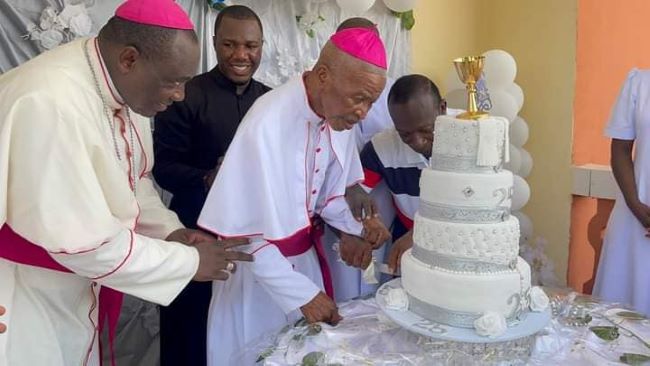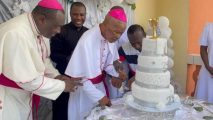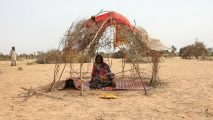Categories
Archives
- April 2024
- March 2024
- February 2024
- January 2024
- December 2023
- November 2023
- October 2023
- September 2023
- August 2023
- July 2023
- June 2023
- May 2023
- April 2023
- March 2023
- February 2023
- January 2023
- December 2022
- November 2022
- October 2022
- September 2022
- August 2022
- July 2022
- June 2022
- May 2022
- April 2022
- March 2022
- February 2022
- January 2022
- December 2021
- November 2021
- October 2021
- September 2021
- August 2021
- July 2021
- June 2021
- May 2021
- April 2021
- March 2021
- February 2021
- January 2021
- December 2020
- November 2020
- October 2020
- September 2020
- August 2020
- July 2020
- June 2020
- May 2020
- April 2020
- March 2020
- February 2020
- January 2020
- December 2019
- November 2019
- October 2019
- September 2019
- August 2019
- July 2019
- June 2019
- May 2019
- April 2019
- March 2019
- February 2019
- January 2019
- December 2018
- November 2018
- October 2018
- September 2018
- August 2018
- July 2018
- June 2018
- May 2018
- April 2018
- March 2018
- February 2018
- January 2018
- December 2017
- November 2017
- October 2017
- September 2017
- August 2017
- July 2017
- June 2017
- May 2017
- April 2017
- March 2017
- February 2017
- January 2017
- December 2016
- November 2016
- October 2016
- September 2016
- August 2016
- July 2016
- June 2016
Featured
 Bishop Francis T. Lysinge @ 25!
Bishop Francis T. Lysinge @ 25!  Understanding the Biya Francophone regime’s support for the Israeli genocide in Gaza
Understanding the Biya Francophone regime’s support for the Israeli genocide in Gaza  Poverty under Biya: Cameroonians embrace Chinese language for brighter futures
Poverty under Biya: Cameroonians embrace Chinese language for brighter futures  Cameroon is broken: Who can fix it?
Cameroon is broken: Who can fix it?  Ethiopia: U.S Senator Cardin Statement on the Killing of Bate Urgessa
Ethiopia: U.S Senator Cardin Statement on the Killing of Bate Urgessa
Most Commented Posts
 4 Anglophone detainees killed in Yaounde
4 Anglophone detainees killed in Yaounde
19 comments Chantal Biya says she will return to Cameroon if General Ivo Yenwo, Martin Belinga Eboutou and Ferdinand Ngoh Ngoh are sacked
Chantal Biya says she will return to Cameroon if General Ivo Yenwo, Martin Belinga Eboutou and Ferdinand Ngoh Ngoh are sacked
13 comments Anglophone Nationalism: Barrister Eyambe says “hidden plans are at work”
Anglophone Nationalism: Barrister Eyambe says “hidden plans are at work”
12 comments The Anglophone Problem – When Facts don’t Lie
The Anglophone Problem – When Facts don’t Lie
12 comments Largest wave of arrest by BIR in Bamenda
Largest wave of arrest by BIR in Bamenda
10 comments
Latest Tweets
Featured
-

Bishop Francis T. Lysinge @ 25!
-

10 Million Cameroonians lived on less than $1.80 per day
-

Football: Xavi to remain as Barcelona coach
-

Biya regime delays bond sale amid regional market strain
-

Historic agreement between Nigeria and Cameroon to tackle wildlife crime
-

Southern Cameroons refugees in Nigeria receive farm seedlings
-

Douala: Investment Forum wraps up with honors for investment champions
© Cameroon Concord News 2024
2, February 2020
Looming Elections Exacerbate Southern Cameroons Crisis 0
The Ambazonia Interim Government has declared Cameroon’s upcoming parliamentary and municipal elections illegal, announcing a six-day “lockdown” in the country’s West in the lead up to the 9 February poll. Preparations for the vote have been met with fierce resistance by separatists, as the AGC – which, in 2017, declared an independent state in English-speaking Western Cameroon – pushes back against the authority of Paul Biya’s Francophone government in Yaoundé. In December, Voice of Africa reported that approximately forty candidates for office were abducted by militants, and earlier this month fighters claimed responsibility for burning down a government election office in Misaje.
Political parties such as the Social Democratic Front (SDF) opposition are now weighing up their participation in the elections, wary of backlash from militants. President Biya himself, meanwhile, announced further troop deployments to the region in his new year’s address, insisting that the elections would go ahead as planned. With Cameroon deeply divided, observers have lambasted the international community’s disinterest in the crisis. Last week, Hannibal Uwaifo, President of the African Bar Association, wrote to Boris Johnson to criticize Britain and the rest of the Commonwealth, as well as the UN, for “refus[ing] to speak decisively” on the issue even as the situation deteriorates.
Tensions over the elections will only compound the already-dire humanitarian conditions in Western Cameroon. ACAPS notes that 40% of health centres in the English-speaking region have closed, with a dearth of hospital beds and medical professionals contributing to the spread of diseases such as cholera. Last year, UNICEF said that more than 80% of schools in Western Cameroon had been shut at the behest of militias since 2017. Already, the UN estimates that the collapse of essential services has led to the internal displacement of nearly 700,000 people, with a further 50,000 refugees fleeing across the border into Nigeria. The election “lockdown” announced by the AGC will force remaining schools, markets and businesses to close, and a round-the-clock curfew will be imposed. In addition, the Biya government’s provocative promise of a heightened military presence in the coming weeks is unlikely to safeguard the electoral process, and may instead serve to further inflame the situation.
The crisis is the latest – and most violent – expression of longstanding grievances held by Western Cameroon’s English-speaking population. The region, previously a separate British colony, was united with French Cameroon as an independent state following a closely fought referendum in 1961. In 1972, another contentious referendum abolished the country’s federal system – which had preserved some of the West’s independence – and replaced it with a unitary state with a powerful central government. The trajectory toward Francophone dominance has continued under President Biya, and regional autonomy has been further eroded in the nearly forty years that have passed since he came to power. Strikes and protests against further centralization began in 2016, catalyzing a series of violent clashes and ultimately leading to the AGC’s declaration of independence the following year.
The failures of a summit called by the Cameroonian government last year are instructive in assessing what must change in order to achieve a peaceful resolution to the crisis. Though President Biya’s ‘Major National Dialogue’ involved multiparty meetings, it sidelined the leaders of the separatist movements themselves, many of whom boycotted the event, and some of whom were in jail. Moreover, the lack of international oversight – a precondition for the participation of several separatist groups – undermined the legitimacy of the talks and enabled the Biya government to persist unchecked with their focus on military force in responding to the crisis. Meaningful attempts by the international community to alleviate the crisis are a necessity, especially in the cases of Britain and France – the countries whose cartographical choices helped land Cameroon in this situation. Without that involvement, and as long as the Biya government and the separatist groups refuse to engage in a meaningful dialogue, the dreadful material costs of the violence will continue to be borne by the people of Cameroon.
Culled from The Organization for world peace